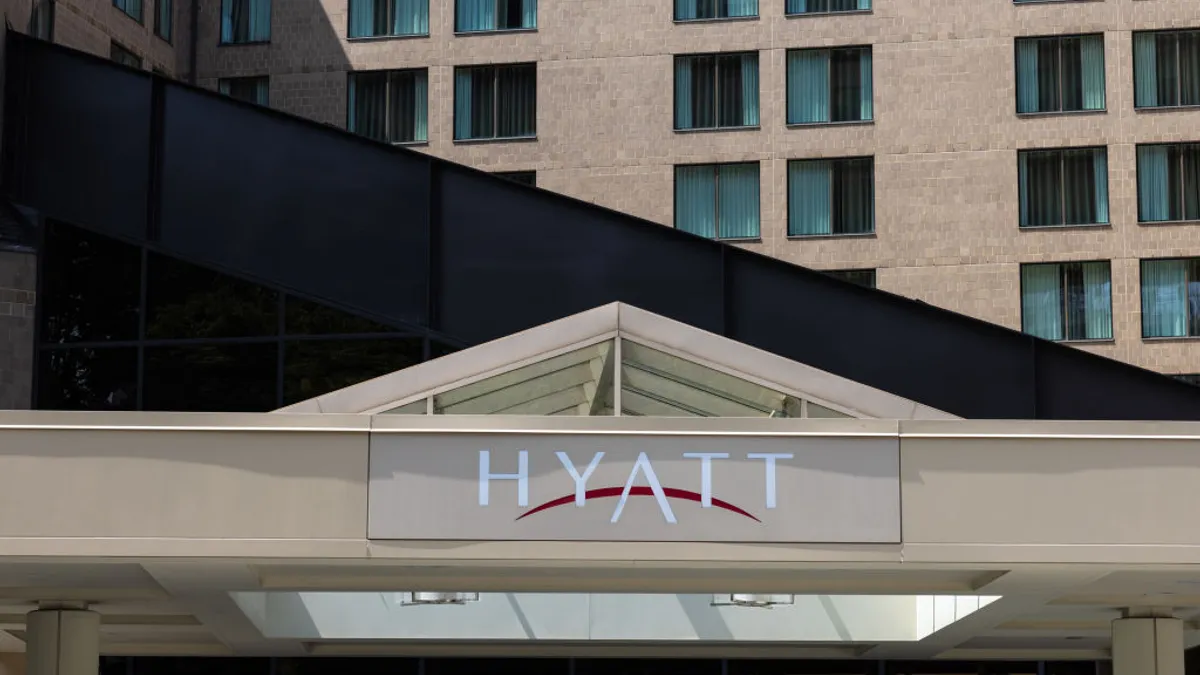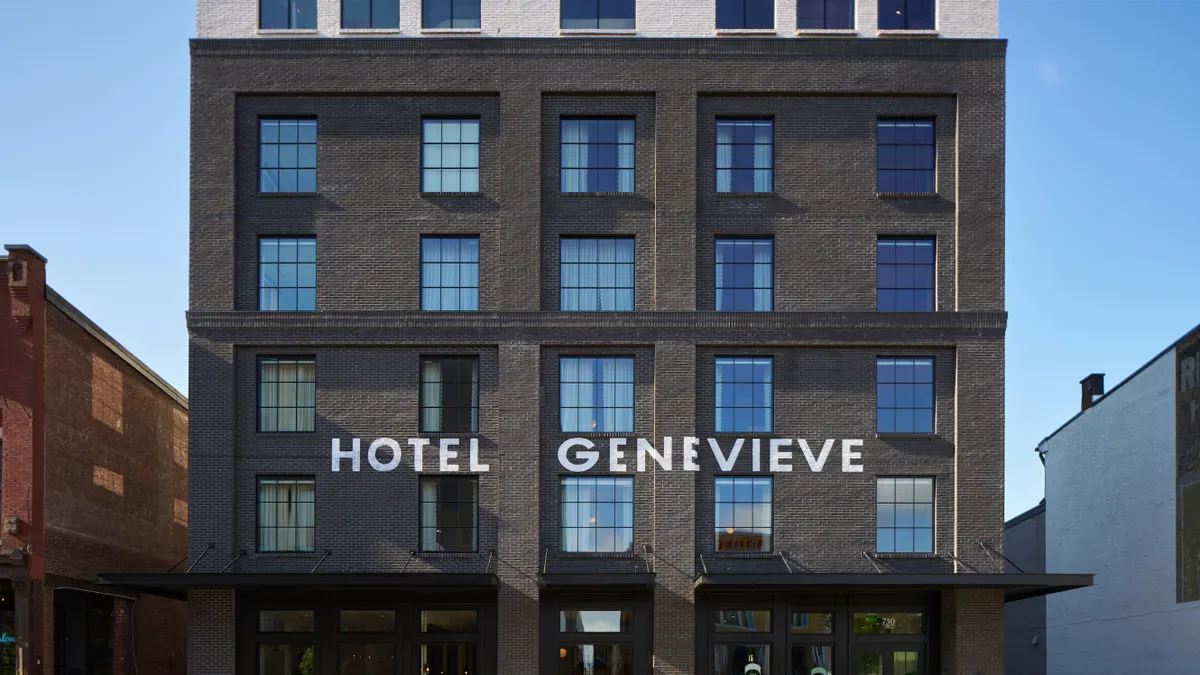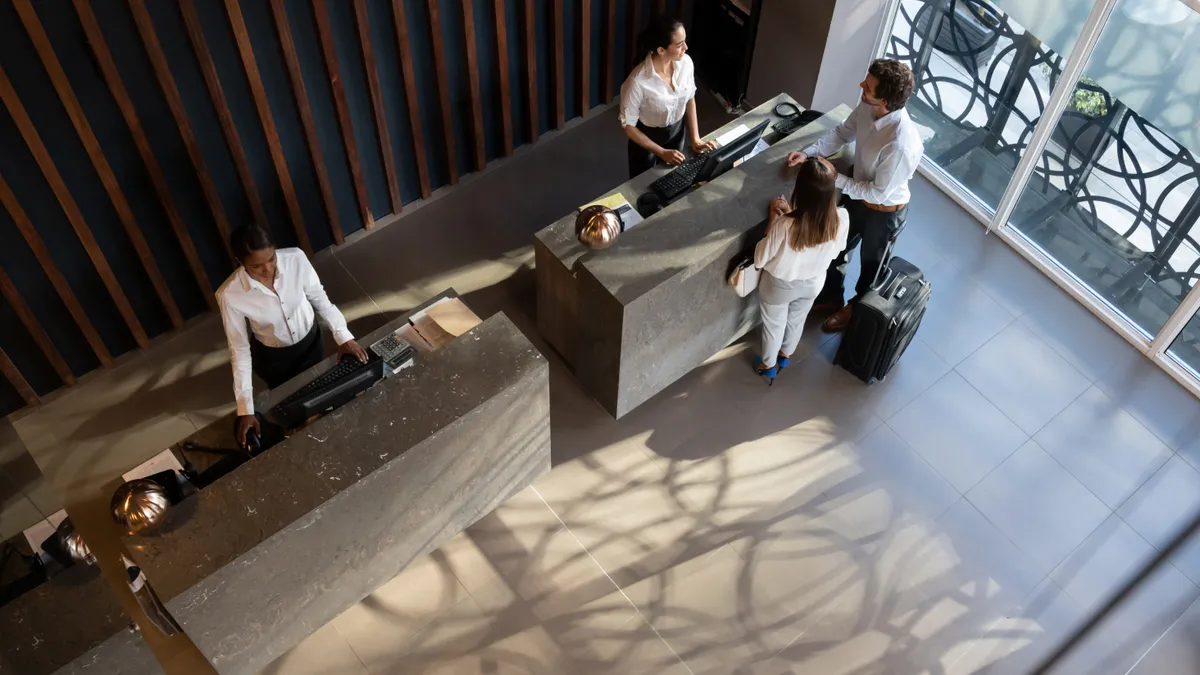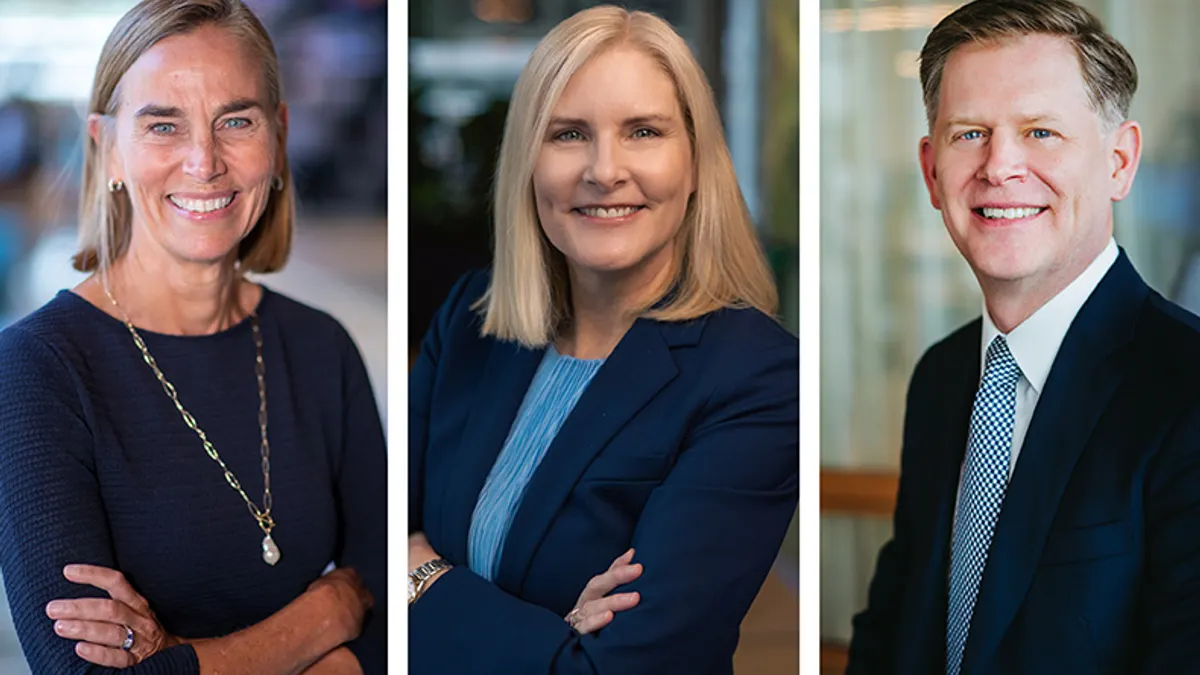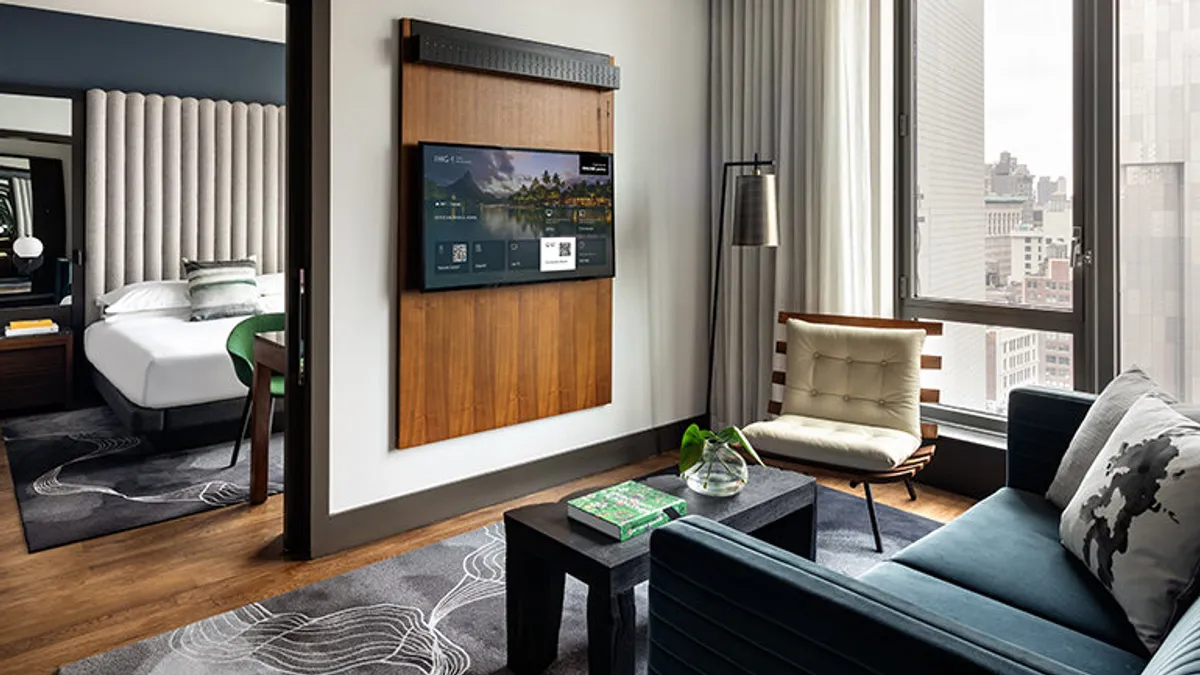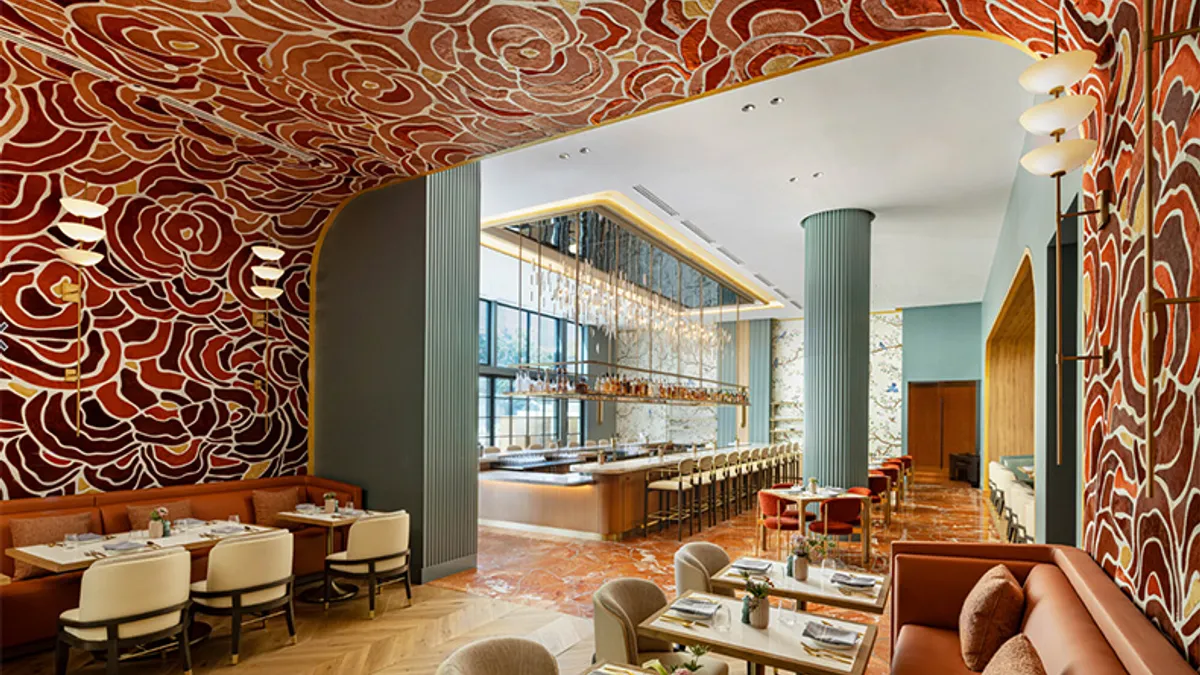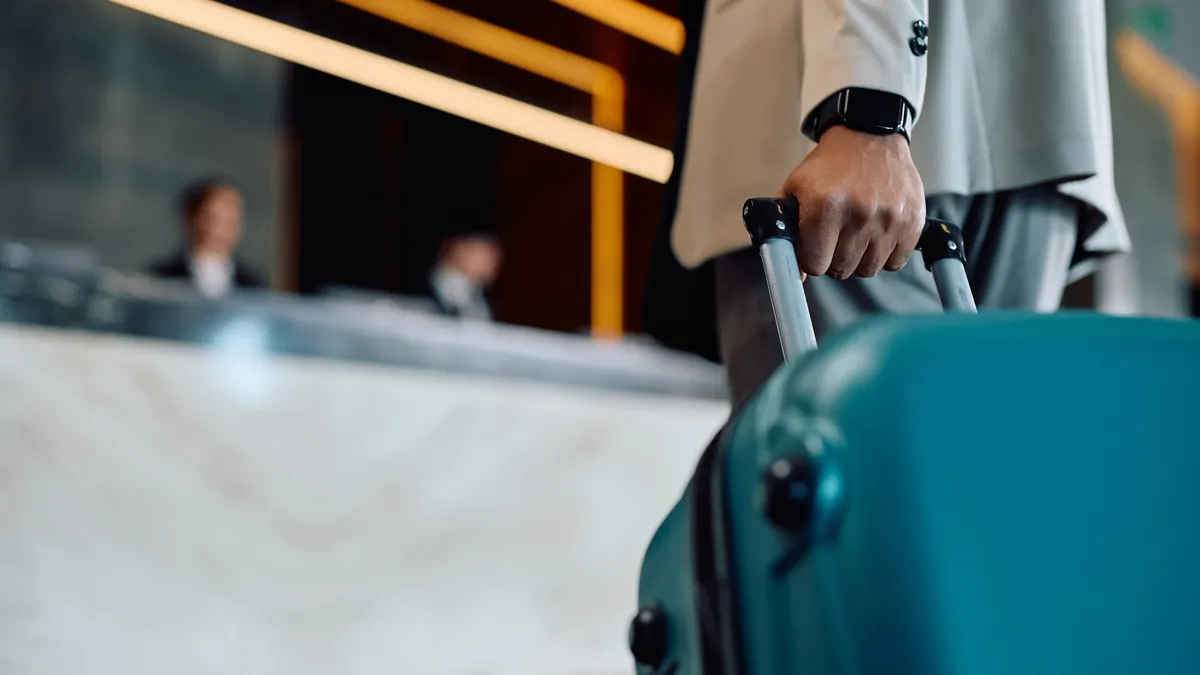The following is a guest post from Adam Ortman, president and founder of marketing agency Kinetic319. Opinions are the authors’ own.
Imagine walking into a hotel and having the front desk greet you by name, already knowing your preferred room temperature, favorite pillow type and that you're a fan of a cappuccino in the morning.
It sounds like something straight out of a fantasy movie! But instead, it’s a new norm in the hospitality industry: meticulously crafting experiences that speak directly to each guest's needs and desires.
According to a report by Accenture, 91% of consumers are more likely to shop with brands that provide relevant offers and recommendations, including hotels.
So, how can you tap into data within the hospitality industry to create personalized experiences that your guests rave about?
What ‘personalization’ means in hospitality
Personalization in hospitality is more than just a buzzword. Instead, it’s a strategic approach that focuses on tailoring services and communications to match guest preferences. It relies on data-driven insights to anticipate needs (ideally, before they have a chance to arise).
After all, hotels are no longer just places to sleep but spaces where guests expect a fully customized experience. By leveraging data — gathered from previous stays, social media and online interactions — you can create unique experiences that resonate with each guest.
Take Hilton, for example. The brand goes beyond just asking guests about their interests — it also considers each property’s unique location. For example, the Hilton Cartagena works with local artists to offer event experiences that are customized both to the guest’s preferences as well as to the culture of the destination.
The power of knowing your guests
Taking the time to get to know your guests might sound oddly intimate, like you’re prying into their personal lives. However, it’s not about being intrusive but about making their stay as comfortable and enjoyable as possible.
"By using data wisely, you create an environment where your guests feel valued and understood — a surefire way to encourage them to return."

Adam Ortman
President and Founder of Kinetic319
Explore your guests’ wants and dislikes, and you can then channel real-time data intelligence to create tailored experiences. Guests adore high-touch surprises designed specifically for their tastes. For example, Hilton’s Honors app allows users to choose their preferred room and check in digitally while also providing tailored recommendations based on past behaviors.
Hilton isn’t the only hospitality giant that has mastered the art of personalization. Here are two more brands that use data to create guest experiences that are anything but ordinary:
- Four Seasons Hotels & Resorts: It utilizes guest preferences to personalize everything from welcome amenities to in-room dining experiences.
- The Ritz-Carlton: When an incident arises, employees are given free rein to spend up to $2,000 per guest to resolve issues and recover the service experience.
By using data wisely, you create an environment where your guests feel valued and understood — a surefire way to encourage them to return.
Finding the right sources of data for personalization
To personalize effectively, you need the right data — but from where? Thankfully, there’s no shortage of sources.
Want to get inside the mind of your ideal guest? Begin by looking at their booking habits, read their social media reviews and pay attention to the little things they love about their room. Some forward-thinking hotels take it up a notch by syncing customer relationship management systems with artificial intelligence, making data collection and analysis smoother.
InterContinental Hotels Group, for instance, uses its IHG Rewards Club to gather data and deliver personalized experiences. From email communication to in-hotel services, they ensure every touchpoint feels uniquely tailored to each guest.
Personalized experiences are no longer a pipedream — programs like this make them a daily reality. Crunching numbers from their loyalty programs, hotels can spot opportunities to shower guests with perks that delight and surprise.
Accor Hotels’ ALL-Accor Live Limitless program is another one that does this well. It leverages guest data to provide personalized rewards, from room upgrades to exclusive event access.
Forging connections through communication
Personalization is about conversations, not just convenient services. It's the way you speak to your guests that makes them feel seen and heard.
Customizing communication involves addressing guests by name, sending personalized welcome messages via email or app notifications or offering exclusive deals that align with their interests.
Consider Choice Hotels International’s Choice Privileges program, which sends members personalized offers and updates based on their previous stays and preferences. Guests feel valued and engaged long after they’ve checked out of the hotel, fostering loyalty that creates lifelong guests out of one-time travelers.
Tracking and leveraging data for personalization
Gathering and analyzing data is just the beginning. The real magic happens when you use it to craft an experience that genuinely resonates with each guest.
Handpick the most meaningful data points to flesh out your marketing playbook. You'll want to explore three key areas: your booking records, how guests rate their stays and the social media chatter surrounding your brand. However, collecting this data is only the first step. You also need to organize and analyze it.
Data analytics tools are your strongest allies in the hunt for data patterns and trends. For example, if a significant number of guests leave feedback about enjoying a particular local cuisine, consider incorporating those flavors into your dining options.
Ultimately, integration is key. Make sure your customer relationship management software, publicity and marketing system and all other systems are connected, allowing data to flow seamlessly across platforms. Remember, too, that each guest is more than just a demographic. By grasping their individuality outside of the boxes they check, you can tailor experiences that exceed their expectations.
The role of technology in personalization
The most effective personalization strategies share a common thread: a robust tech infrastructure. To genuinely wow your guests, you need more than just a warm smile.
That's where innovative tech tools come in: think AI-driven predictions and streamlined communication channels that enable guests to let you know exactly what they want.
Imagine a room that conforms to your every whim. Smart technologies, by way of Internet of Things devices, strive to make this a reality, bridging the gap between guesswork and genuine guest satisfaction. Chatbots, powered by AI, can jump into action to respond to guest inquiries instantly, giving them a personalized experience.
Hyatt Hotels cleverly harnesses this technology to supercharge how guests experience their stay. Through its innovative app, World of Hyatt customers can skip the front desk and head straight to their customized room, all at their fingertips.
Overcoming challenges in personalization
While personalization offers numerous benefits, it also presents challenges. At the top of that list are data privacy concerns.
The good news is that you can stay ahead of these challenges by prioritizing transparent data policies and investing in robust data management systems. Make sure you’re in compliance with all data protection regulations, like the General Data Protection Regulation, so you can maintain the trust of your guests while also protecting their most sensitive information.
Nevertheless, the future of personalization in hospitality is bright, with advancements in AI and data analytics continuing to shape guest experiences. Hotels that adapt to these trends are sure to stay ahead of the curve — and set new standards for guest satisfaction.




